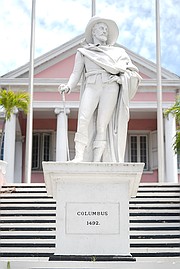Monday was Commonwealth Day, observed by countries in Africa, Asia, the Caribbean and Americas, the Pacific, and Europe, and it was the start of a week-long schedule of events. The theme for Commonwealth Day 2023 was “Forging a sustainable and peaceful common future”.
This year, it marked the tenth anniversary of the signing of the Commonwealth Charter. The Commonwealth Charter is meant to be a document that unites Member States through a set of shared values. It “expresses the commitment of member states to the development of free and democratic societies and the promotion of peace and prosperity to improve the lives of all the people of the Commonwealth” and “acknowledges the role of civil society in supporting the goals and values of the Commonwealth”.
The sixteen values and principles of the Charter are democracy, human rights, international peace and security, tolerance, respect and understanding, freedom of expression, separation of powers, rule of law, good governance, sustainable development, protecting the environment, access to health, education, food and shelter, gender equality, importance of young people in the Commonwealth, recognition of the needs of small States, recognition of the needs of vulnerable states, and the role of civil society.
The Commonwealth Charter does not address the history of the Commonwealth or what most of the Member States actually have in common and made them a part of this group. It does not address slavery and colonisation, nor does it acknowledge the continued impact of both slavery and colonization on Member States and, more specifically, the people in situations of vulnerability within those Member States. This cannot be separated from the stated values.
We can take rule of law as an example. The Charter says: “We believe in the rule of law as an essential protection for the people of the Commonwealth and as an assurance of limited and accountable government. In particular we support an independent, impartial, honest and competent judiciary and recognise that an independent, effective and competent legal system is integral to upholding the rule of law, engendering public confidence and dispensing justice.”
Member States that were colonised by the British were left with laws that discriminate against women, girls, and LGBTQI+ people.
Even with independence, the laws remained the same, and many Member States have the same, or strikingly similar, constitutions. Since colonization, Britain has amended many of its laws toward equality and non-discrimination in various areas, including gender.
Meanwhile, Member States like The Bahamas are still stuck with discriminatory laws. This impacts gender equality which is another value in the Commonwealth Charter.
It is easy to say that Member States should accept responsibility for their state of affairs and amend their laws. It is not, however, realistic. It must be acknowledged that discriminatory laws were imposed by colonising countries.
They are responsible for the harm caused and the violence that continues to be inflicted upon the people living in Member States, namely women, girls, LGBTQI+ people, black people, indigenous people, and people with disabilities.
Constitutional reform, as we have seen through our own experience since 2002, is not as simple a process as it ought to be because it is not a matter of drafting and passing a bill, or even getting the public to vote in it. It requires education that includes unlearning.
Older generations grew up with a set of ideologies that many of us have learned are untrue, unfair, unjust, and unacceptable. They are convinced that there is no way for the world, or for this country, to be without distinctions that rank us and set some of us up to be considered and treated as subhuman.
Undoing the violence and subjugation that led to the firm belief in discriminatory laws and practices is not possible, but reparatory justice is possible.
The process of unlearning is not easy, it is not short-term work, and it is not receiving the investment that is required. There is, first of all, no political will, and that is partly because of the religion that was forced upon our countries through slavery and colonization, becoming the dominant religion with ease.
People now believe they have a moral authority to discriminate and be violent toward certain groups of people because of the fundamentalist teaching of religious leaders who do not hide that they pull the string of Members of Parliament and political parties that are obviously more committed to the longevity of their political careers than they are to sustainability, peace, or the equality and wellbeing of people — the same people they depend on to vote for them every ten years (since we know our dissatisfaction leads us to change parties every five years).
We have an ineffective system of governance. We have two almost indistinguishable political parties that takes turns being the majority in the House of Assembly. We have Members of Parliament who are expected to both make laws and attend to issues within their constituencies, so they are set up to fail, especially when combined with the expectation that they maintain party loyalty, regardless of what it means for the people they represent.
We have a largely disengaged electorate that is kept busy with multiple jobs, limited by non-living wages, and exhausted by the losses and demands -from hours of wasted time in traffic to unpaid and completely unsupported labour of caring for people with specific needs – that come with living and working in a place that is designed for the wealthy and the foreign to thrive at the expense of everyone else.
Rule of a law, as a value, cannot take us very far. The law is severely lacking in many areas. There is no protection from discrimination for women and girls. There is no protection from discrimination for LGBTQI+ people.
Women do not have the right to automatically pass on citizenship to their children, regardless of who they marry or where they give birth. Legal reform requires an engaged civil society and rights-minded lawmakers. We lack both.
The Commonwealth Charter, then, is missing one major component that could actually give it momentum and increase buy-in. That component is the acknowledgement of wrongdoing, specifically naming the violence against Member States, along with reparations.
CARICOM has developed a 10-point plan for reparatory justice that is a good place to start, and The Bahamas National Reparations Committee is prepared to lead the conversation in The Bahamas.
With 2023 being the Year of Youth, Commonwealth Foundation hosted “A Decade of the Commonwealth Charter: Young Leaders’ Dialogue” which was a virtual event live-streamed to Facebook. At the beginning of the event, Commonwealth Foundation posed questions to the audience. Where do we want the Commonwealth to be in ten years’ time? How can the Charter inform and help get us there? How do we promote greater awareness of the Commonwealth Charter amongst the people of the Commonwealth?
The young people speaking at the event including Larissa Crawford (she/ her) from Future Ancestors Services and based in Canada, Christine Samwaroo (she/her) from The Breadfruit Collective in Guyana, Riddhi Dastidar (they/them) based in Delhi, Deanna Lyncook from The History Hotline podcast, based in the UK.
The discussion was especially interesting because the participants were not there to be polite or deferential to anyone or any ideals. They pushed back against a number of ideas including that young people are responsible for fixing the problems they did not create, that the values in the Commonwealth Charter are inherently good or easily translated and applicable to every Member State, and that there is nothing to be done about the past.
They named communities that have been violated and that need to be specifically supported. They called for action to make use of their recommendations and those that have been shared in other spaces. It was clear that they did not want to be a part of a conversation that ended when the virtual meeting link expired, but one that contributed to better outcomes.
You can find the recording on the Commonwealth Foundation’s Facebook page, and connect with the speakers through the links provided in the comments.
These are all topics that ought to be at the front of our minds as we approach fiftieth anniversary of independence of The Bahamas.
We should be thinking about what was taken from this country, what is owed to it, and what we owe to ourselves. We should be seeking clarity on our values. We should be making assessments on how far — or not so far — we have come since 1973, and what needs to happen in the next five, 10, 25, and 50 years for the people in this country to thrive.
Fifty plus years of survival mode is not good enough. We need justice. We need peace. We need equality. We deserve to be on another level.
Published in The Tribune on March 15, 2023




